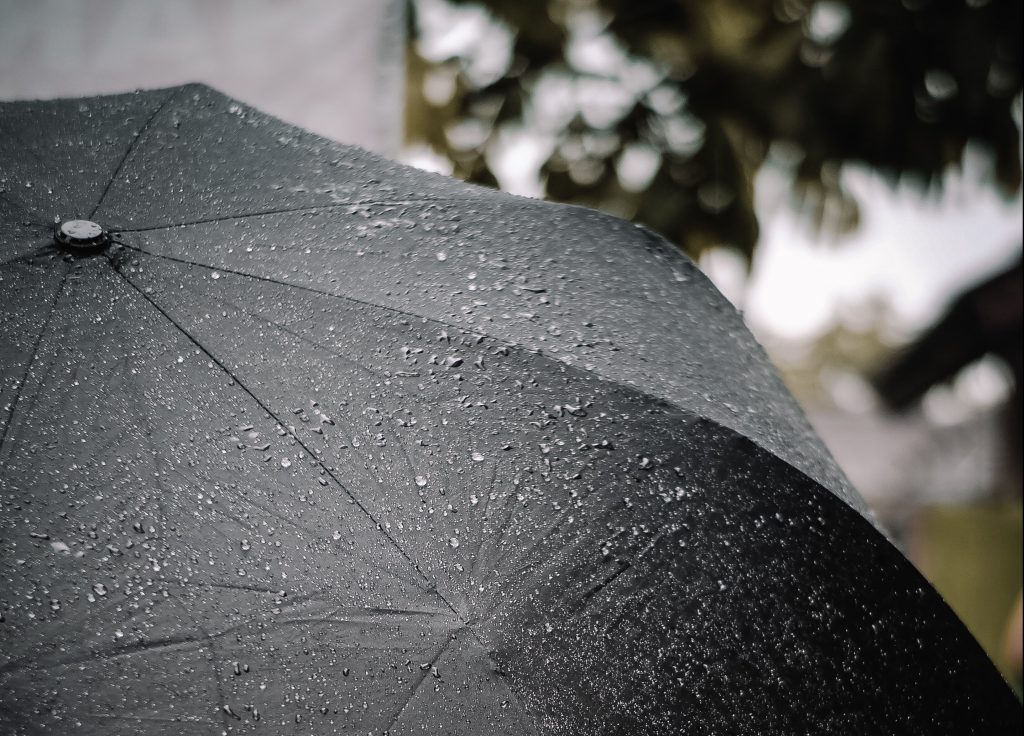Subscribe to the Newsletter
If you are interested in understanding how Traditional Chinese Medicine can improve your life sign up to my newsletter for the latest updates.

Some people get restless legs all day, others just in the evenings, and for some they prevent sleep.
I’ve heard of all sorts of solutions, including putting corks in the bed near your feet – which, they say, also helps foot cramps at night!
In Chinese medicine I’ve come across several syndromes that include twitchy legs in their picture and which, if correctly diagnosed and treated, often benefit from acupuncture.
The way I understand the condition from the Chinese perspective is this. If Qi and Blood were reaching your legs and feet smoothly you wouldn’t have a problem.
Since you do have a problem (the Chinese medicine reasoning goes), either Qi or Blood isn’t getting there as needed.
Taking an analogy, it’s rather like what happens when your car runs short of fuel and the engine starts missing. Power goes, then suddenly as the fuel pump finds a bit more fuel and shunts it through, the engine picks up again for a quick spurt before failing again.
Another way of considering the analogy is that the fuel pipe from tank to engine gets a kink in it, blocking the smooth flow of fuel. This kink can occur for a variety of reasons. (For more on Blocked Channels and Channel theory, see further down this page.)
From the Western perspective restless legs occur because nerves twitch. They twitch mostly because of lack of Iron although there are many other possibilities:
Chinese medicine has been in constant development for probably 3000 years so they’ve had plenty of time to think about it, and an awful lot of Chinese people suffering from the condition!
Because they lacked our understanding of the nervous system, they had to explain it another way.
If your legs are resting quietly, warm and comfortable, then while yin and yang are balanced, yang is slightly less active.
(Small piece of advice! If you’ve never heard of yin, yang, qi, Blood etc, you’re going to struggle a bit with this page, I’m afraid. Do read the pages linked to those words before you get started on the rest of this!)
When your restless legs leap into action, you can see it as yang escaping or as yin being unable to restrain it. Because there are few other signs of excess yang (heat, redness, irascibility etc.) the condition is usually seen as deficient yin, hence the above analogy with fuel reaching the engine.
But there are other possibilities in Chinese medicine, including obstruction caused by
Another possibility is that, since you are slightly yin deficient, any small yang event could ‘trigger’ a yang event – the spasm. For example?

Usually the condition occurs after a period of rest, either sitting or lying in bed. The condition forces movement. If you get up and walk around or shake your legs, the condition is ameliorated though not cured. You have to keep moving or it returns.
Of course, if you are trying to get to sleep this is a disaster!
In Chinese medicine, the movement you make – walking around and shaking your legs – is Yang and as Qi is Yang’s manifestation in the body, as Yang increases, Qi leads Blood (Yin) along the channels (meridians of acupuncture).
As Blood passes along the channels, it nourishes the tissues and stops miscreant Yang escaping and giving restless legs.
If that explanation seems bizarre – or a bit difficult to comprehend on first exposure – think of it as a restless child’s parents taking it for a walk, so occupying the child’s mind and relieving its tensions, at the same time as forcing oxygen (from the exercise) into the child’s lungs, and so improving its blood, helping the child to relax.

Once the child is relaxed it may go to sleep more easily.
This depends on the other symptoms. If you look at the above list of conditions proposed in Western medicine:
Overall, restless legs occurs mainly from Yin Deficiency or Blood deficiency of one kind or another.
This lack of Yin-type energy means that Yang energy is un-restrained and because the channels (meridians) affected are those to do with Blood and the manufacture of Blood, eg the Stomach channel, it is often the Yang channels in the legs that give restless legs.
The Yang channels in your leg are your Stomach, Gallbladder and Bladder channels.
From the above you’ll understand that this supposedly simple though tiresome condition is anything but simple – even in Chinese medicine!
From my own experience, the following syndromes often explain it:
Heat in the Intestines: this blocks the flow of Qi and Blood along the channels: usually the Stomach channel, but can be others. I notice this in myself in the evenings when I am tired and may have eaten something, usually containing gluten, or yeast – including alcohol, or something too sweet. (I don’t have gluten sensitivity usually.) This approaches Stomach Yin deficiency, see below.
If you think this is your problem-syndrome, then avoid the foods that, from your experience, cause it. Simple! But you could also consider treatment to improve your health so that you suffer less from this syndrome. Acupuncture might help.
Some of the foods that might be causing you a problem could be listed in my list of Hot Foods.
Blood Deficiency: this mainly affects one of the Extraordinary Meridians called Chong Mo or the Penetrating Vessel. As a result you get abdominal distension, restless legs, the tendency to be worried or anxious, and if you are female to have menses at irregular times – and your periods may be scanty. You and your tongue probably both look pale.
If this is the syndrome that affects you, then what and how you eat will be important. Read our pages on Nutrition, Blood-Building foods and on Supplements. However, this probably won’t be enough: treatment with acupuncture to balance your Chong Mo vessel might make a huge difference.
Liver and Kidney Yin deficiency: this comes about over time so usually affects older people more than younger people unless the younger person has been through great tribulations. (Tribulations? Such as huge amounts of work without time to relax; endless worries and/or fevers, and chronic disease: stuff that ages you!)
This syndrome takes time to develop and isn’t usually cured quickly. Accept that you may need quite a few treatments.
Start soon, however, because as you grow older your body’s ability to repair this syndrome becomes less effective. A good acupuncturist will be able to suggest both foods and exercise to help, and to explain what not to do, although if you read the linked pages, including my page on Yin deficiency and Yin Deficiency Causes you’ll get a pretty good idea.

Doesn’t paddling in cool water look good? – especially if you have hot, restless legs!
Stomach Yin deficiency: this syndrome means you lack the wherewithal in your digestion to digest food: either you don’t feel hungry or thirsty or, even if you do feel slightly hungry, you become uncomfortable and full if you eat or drink too much.
You are often constipated and may have what you are told is too much stomach acid.
What to do about Stomach Yin Deficiency? Read the link above and you’ll begin to understand the underlying causes of this, and what to do about it.
I doubt if your body will be able, on its own, to repair this syndrome, unless you happen to be able to live the ideal desert-island life, so get some treatment with acupuncture and/or Chinese medicine.
Heat: this takes many forms but in menopausal women it can also be a cause of restless legs. Actually, there is also – at the menopause – often some yin deficiency which can lead to excess yang because there isn’t enough yin to restrain it (like what happens when teacher leaves the classroom and the children explore their new limits) – and a sign of this is excess heat which exacerbates the condition. If so, you may get red skin, possibly a rash, and feel irritable. You’d also be hot and thirsty.
If Heat is your problem at the menopause, first read the page on Yin deficiency (I’ve also written a book on Yin Deficiency), then try to work out what could be causing the excess heat. This could be the weather, or frayed emotions, or something you’re eating, or frustration/anger, for example. It could also be something like eczema, easily aggravated by the causes just mentioned.

Stay in Touch!
No spam, only notifications about new articles and updates.

Book a Video consultation if you want to know more about your symptoms
Damp: damp turns up in all sorts of syndromes in Chinese medicine.

As regards restless legs, it usually means swelling, either as oedema, or at joints. It makes you feel stiff and heavy, and these symptoms are usually better as you warm up and keep moving. They often get worse during rest. Damp is yin in nature, so can block the free movement of Qi. Qi keeps pushing, however, and as it periodically breaks through you get spasms of movement.
It is often worse when the weather is damp or humid.
If Damp is your problem, movement helps but only temporarily. There are definitely foods that make it worse (raw or cold food, for a start) and others that may help (ginger root helps your Spleen work better and that helps it clear the damp).
Avoid damp, wet or humid conditions if possible. Make sure where you live has low humidity.
(I once had a patient who had major problems from damp. Every time I treated her she got better, but only for a while. One Sunday I was delivering some herbs to her house and she invited me in. It was in a basement and I noticed that the wall-paper was hanging off the walls, and she had several de-humidifiers going. Apparently the damp-proof course (a way to stop damp rising up the walls from the foundations) had failed. I pointed out that what I was doing was being blocked by the damp conditions she lived in. Soon after, she moved to a dry, warm flat and got better.)
Acupuncture helps Damp but the right Chinese herbal formula is best, taken over a long period.
Also, if your problem comes from Cold-Damp, then warm foods are better. If your problem comes from Damp-Heat, AVOID Damp-Heat type foods.
In any case, avoid foods that cause Damp!
The channels of acupuncture are not generally accepted by Western medicine, but acupuncture works on the basis that they do exist.
Channel theory is a big chunk of Chinese medicine. One part of it describes what happens when a channel gets obstructed. This can affect not only that channel but others too. In fact there can be a whole set of channels that begin to malfunction from just one blockage.

Like traffic jams caused by road-works, problems can back up with hassles arising far, far away!
Blocks can occur from various causes. Here are some:
If a block along one of your channels causes your periodic limb movement disorder (what a mouthful!), see an acupuncturist who may be able to work out which channel is affected, and where.
If it’s one of your zang-fu energy organs that’s the problem, he may be able to correct it, and/or work with you to improve it.
And if it’s a scar, he can probably treat it, and show you how you can help, for example with massage.
The same applies to accidents and surgery: a time-line showing how your health has changed over the years may reveal consequences of accidents or surgery that you had attributed to something else. Sometimes channel-based acupuncture produces apparent miracles for this.
(As an example, one old lady traced her restless legs back to a neck injury in her teens, though her restless legs only began some ten years later, she thought. Acupuncture on her neck and back gave her a wonderful release and great improvement – but not cure – in her restless legs, but she also needed treatment, by then, for Blood stasis to maintain the improvement. Eventually she got much better though she still had very occasional episodes.)
If your restless legs come from damp or phlegm, you may be able to do something about it yourself, though good acupuncture and/or herbs can speed the process.
Blood stasis, a common cause of restless legs as you age, is harder to treat. Acupuncture helps. Herbs are great, but they take time. Best of all is to get into the habit of regular exercise that gets you out of breath, several times a day – but you’ll almost certainly need treatment as well.
Unfortunately it is quite possible to get restless legs from a combination of the above. That’s definitely when you need to see someone who can see through your symptoms to a correct diagnosis, then work out what to do about it. However, be patient.
Return from Restless Legs to our page on Insomnia or read about other possible causes of insomnia in Chinese medicine, such as:

Why You get Nervous Stomach Anxiety and How to Handle It. Acupuncture has great ways to help.
Subscribe to the Newsletter
If you are interested in understanding how Traditional Chinese Medicine can improve your life sign up to my newsletter for the latest updates.
Subscribe to the Newsletter
If you are interested in understanding how Traditional Chinese Medicine can improve your life sign up to my newsletter for the latest updates.